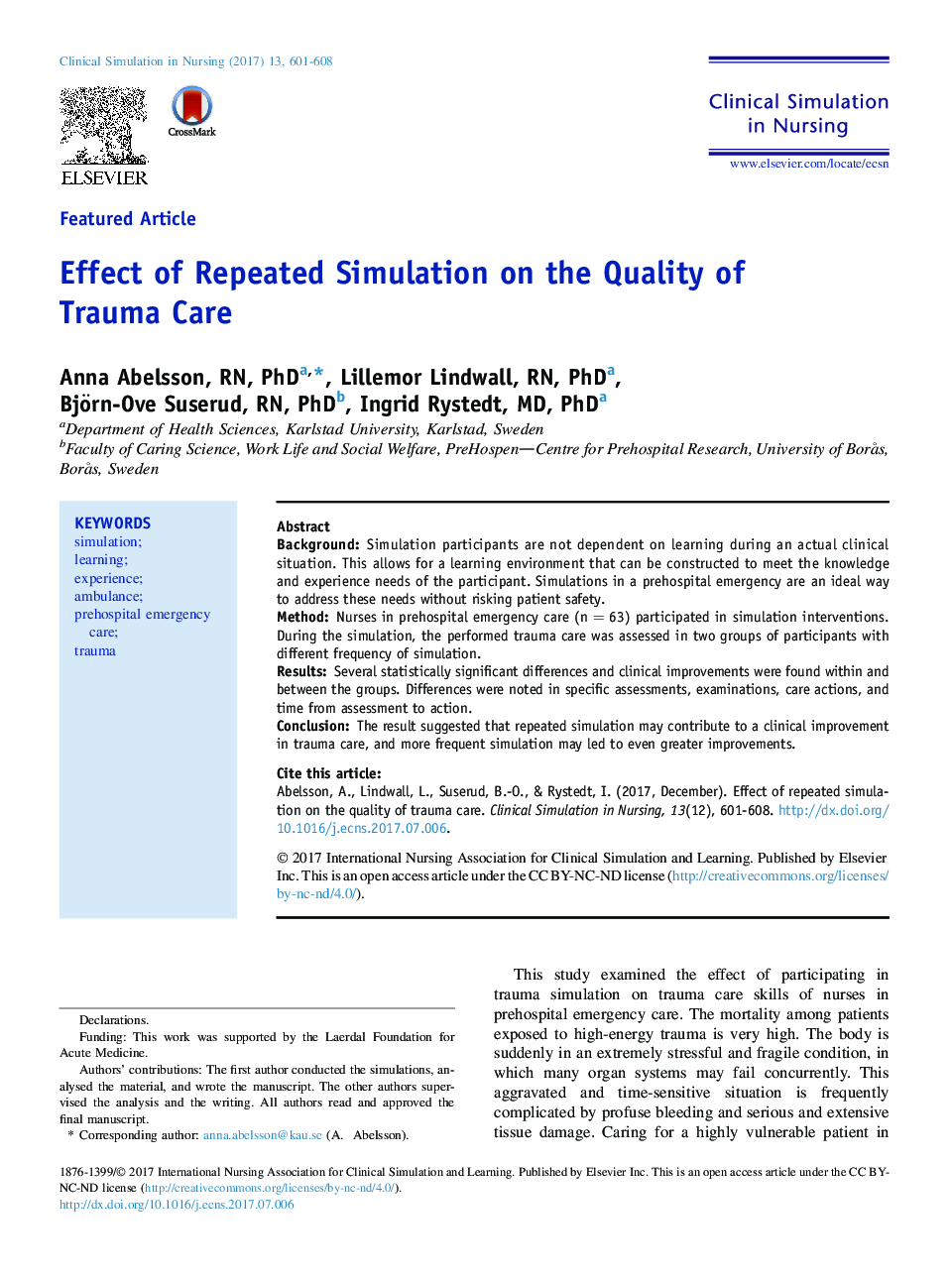| Article ID | Journal | Published Year | Pages | File Type |
|---|---|---|---|---|
| 5567439 | Clinical Simulation in Nursing | 2017 | 8 Pages |
â¢Repeated simulations improve Prehospital Trauma Life Support knowledge.â¢Lifesaving care actions are neglected in trauma care.â¢Trauma simulation without objective assessment may lead to insufficient learning.
BackgroundSimulation participants are not dependent on learning during an actual clinical situation. This allows for a learning environment that can be constructed to meet the knowledge and experience needs of the participant. Simulations in a prehospital emergency are an ideal way to address these needs without risking patient safety.MethodNurses in prehospital emergency care (n = 63) participated in simulation interventions. During the simulation, the performed trauma care was assessed in two groups of participants with different frequency of simulation.ResultsSeveral statistically significant differences and clinical improvements were found within and between the groups. Differences were noted in specific assessments, examinations, care actions, and time from assessment to action.ConclusionThe result suggested that repeated simulation may contribute to a clinical improvement in trauma care, and more frequent simulation may led to even greater improvements.
